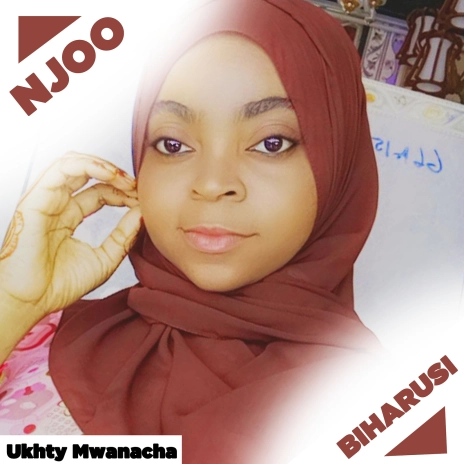
Ukhty Mwanacha Njoo Biharusi is qasida that tell the beauty and joy occasioned by a wedding. Its lines speak about a bride and the feeling of her day while family and cultural aspects come into play such as the need for patience and peace in a marriage.
The qasida start with warm words directed to the bride to encourage her to enter the event with poise: ‘Njoo oooh njoooh / njoooh biharusi.’ Here, the repeating part really stress the excitement that comes with a wedding ceremony. It makes it clear in the lyrics that this is the moment of the occasion which has been long in coming—to the bride herself and her close relatives as well. There is a great sense of joy where smiling is common, as observed in the line “nyuso zetu zimejaa furaha” which tells that these are happy times for everyone involved in the wedding.
Another notable aspect of this song is t on the aesthetics of the bride. The lyrics state that her wedding dress is from the United States, while her hijab- nikabu in Swahili, is from Oman. Therefore, a higher value and expense is attached to the wedding garments in this instance. This focus on the appearance of the bride is part of the custom of respect and glorification of the individual on their wedding day, in which how they present themselves is reflective of their Hawaiian family and social status. The repeated line, “umependeza,” seeks to appreciate the bride’s beauty.
More than just the physical considerations, this Ukhty Mwancha connects to the concept of marriage and family unions. “Msije mkagombana / zikaachana familia, acts to show the importance of harmony between bride and groom, the repercussions should that not happen-not just with the couple but with the families that are engaged. This is also accompanied by the message of ‘patience is a virtue – shida na mambo ya sodo.’ Such shows the wisdom that is preached in such instances- that marriage is not just about the elation that comes with the wedding day only.
This qaseeda is done in a fashion of Swahili poetry whereby so much repetition, rhythm, and rhymes has been used. The tune is simple and expressive in nature as it supplements the text on the pleasant and reverent mood of the participants.

